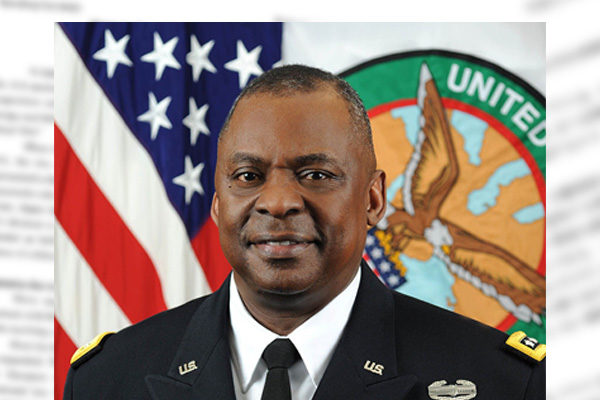U.S. President-elect Joe Biden has nominated Lloyd Austin, a retired Army general, as defense secretary. As commander of U.S. Central Command in charge of the Middle East, Austin led operations to mop up Islamic State terrorists. But he is not necessarily well versed in the Indo-Pacific military situation. At a time when China has become the greatest threat to the United States, it is doubtful whether he is the most qualified for the defense chief post.
There is concern that Biden, though having called for strengthening alliances, could cut defense spending for U.S. domestic reasons and cancel key Japan-U.S. defense plans in a manner to consequently weaken the bilateral alliance.
Austin replaced a front-runner candidate
Former Under Secretary of Defense Michele Flournoy had earlier been viewed as a front-runner candidate for the defense chief. In the second half of the 1990s when I served as defense attaché at the Japanese embassy in Washington, she was deputy assistant secretary of defense in charge of the Quarterly Defense Review. Then, I talked with her several times and found that she was making realistic and sound decisions and aiming to build U.S. forces capable of fighting and winning two major theater wars nearly simultaneously.
Flournoy became undersecretary of defense for policy under the Obama administration and frequently disputed with then Vice President Biden who was reluctant to conduct overseas military interventions. In many cases, her decisions were eventually appropriate. In the latest process to select the defense secretary nominee, Flournoy dropped out in the face of opposition from leftist Democrats who dislike overseas military interventions.
Instead, Austin, an African American, was nominated. Biden’s nomination of cabinet members leads us to feel that he might have given priority to the gender and racial balance rather than whether nominees are qualified for their respective posts.
Austin has spent almost whole military career in the Army that is the least relevant service in countering Chinese military activities in the Indo-Pacific Region. He used the old word the “Asia Pacific” instead of the “Indo-Pacific” in his address to thank Biden for the nomination, causing U.S. allies and friends in the region alarm that he might not be familiar with the new strategic concept of integrating the Indian and the Pacific Oceans.
Defense spending cut to affect Japan-U.S. cooperation
Meanwhile, Democratic administrations have traditionally cut defense spending, giving priority to health care and other domestic agenda. After the Trump administration increased space-related defense spending including the creation of the Space Force, the incoming Biden administration could reduce such spending. Although Japan has considered to join the U.S. “satellite constellation” program to launch numerous satellites for the missile defense, with Japan earmarking about $2 million for a conceptual study on the program, U.S. defense spending cuts could affect such cooperation.
The Biden administration is also likely to scale down the 355-ship Navy that the Trump administration has promoted. The U.S. Navy now has fewer warships than China’s People's Liberation Army (PLA) Navy. Potential defense spending cuts could affect the number of U.S. naval ships that would work with Japan’s Maritime Self-Defense Force in realizing the free and open Indo-Pacific.
Without being complacent with Biden’s remark calling for strengthening alliances, Japan should pay attention to U.S. defense-related appointments, budgets, and policies.
Fumio Ota is a senior fellow and a Planning Committee member at the Japan Institute for National Fundamentals. He is a retired Vice Admiral of Japan’s Maritime Self-Defense Force.


